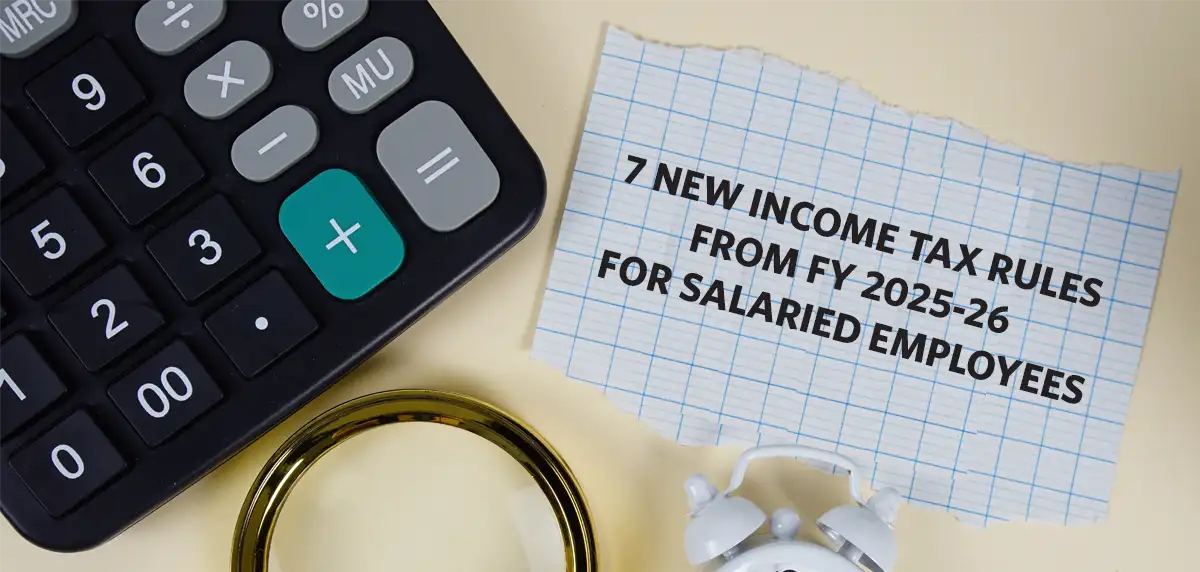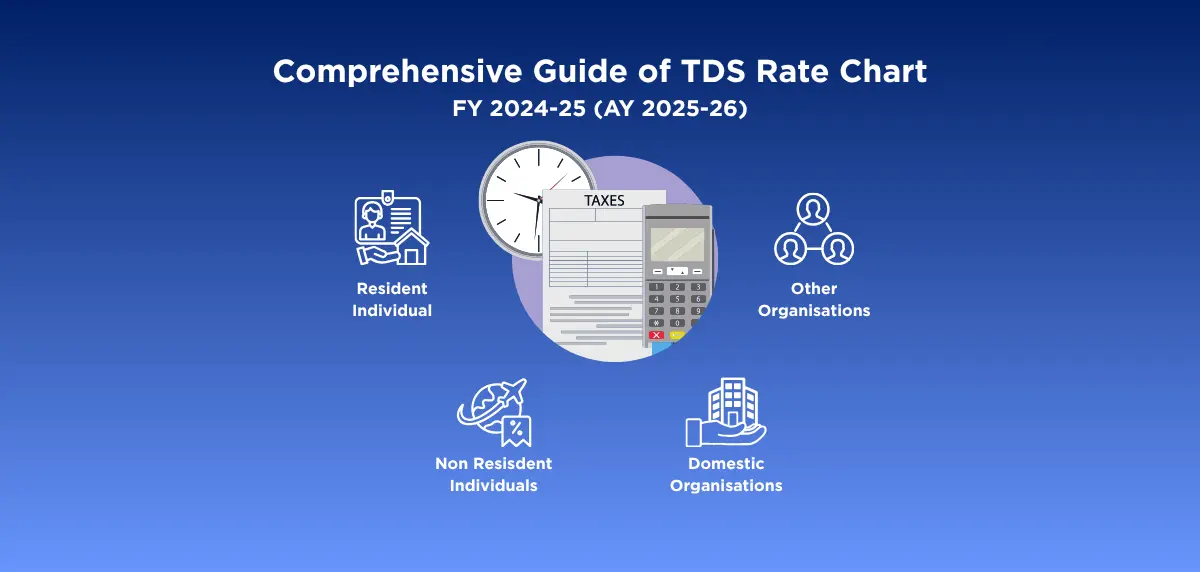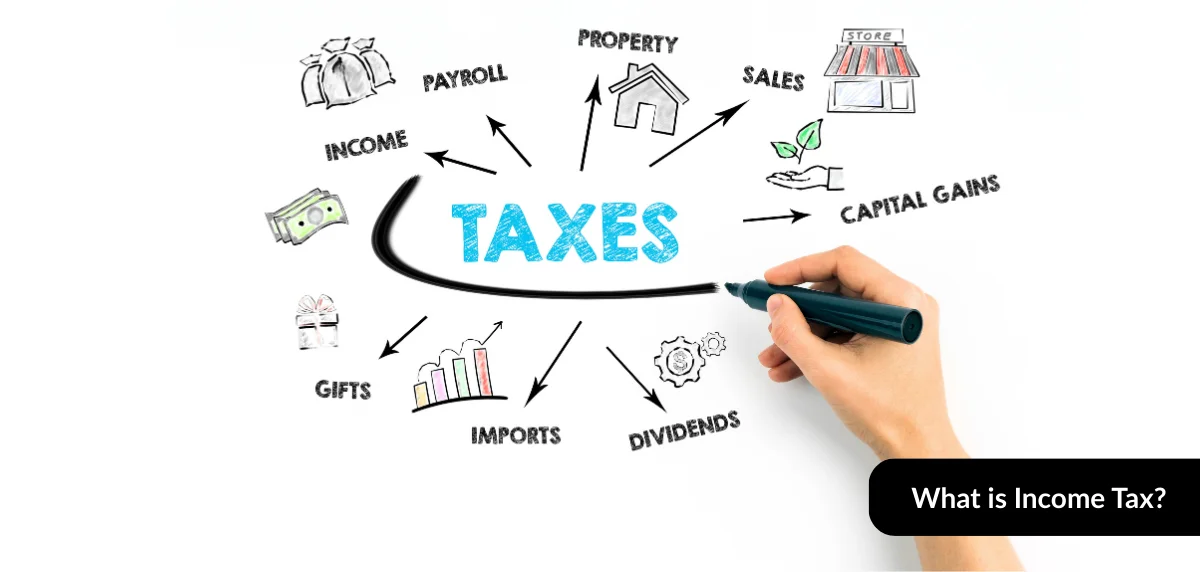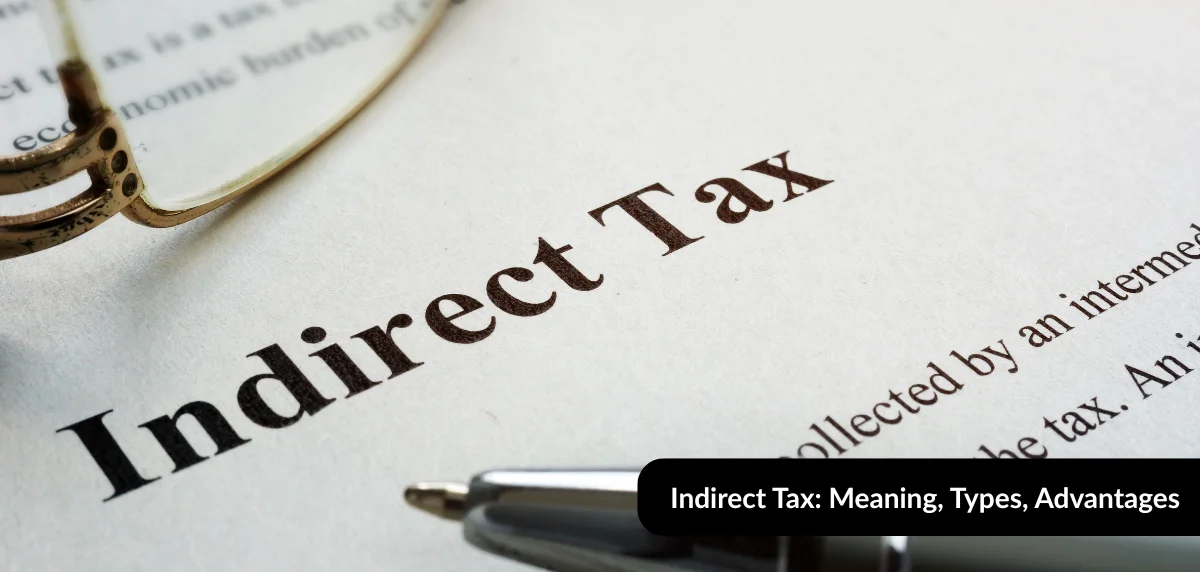The Indian government has rolled out several new income tax rules for salaried employees that come into force from April 1, 2025. These changes were introduced by the Finance Minister of India during the Union Budget 2025. In the long run, these rules can simplify the tax system further and benefit the working population.
One of the most important updates is the revision of tax slabs under the new tax regime. As a salaried individual, you must be aware of the revised rules to plan your finances and optimise your tax savings.
7 Income Tax Rules Effective from April 1st 2025 for Salaried Employees
From increased tax rebates to ULIP taxation, here are seven new IT rules you should know about:
Increase in Tax Rebates under Section 87A
Under the new income tax rules, the rebate under Section 87A has been increased from ₹25,000 to ₹60,000. This means that individuals with an income of up to ₹12 lakh will not have to pay any income tax under the new regime.
Note that this excludes income from capital gains. For salaried employees, considering the standard deduction of ₹75,000, the new tax-free income limit is ₹12.75 lakh.
The tax rebate remains the same under the old regime.
Revision of Income Tax Slabs
The new tax slabs for FY 25-26 under the default tax regime have been updated to provide more relief to taxpayers. The revised rates are as follows:
Income Tax Slabs
| Revised Tax Rates
|
Till ₹4 lakhs
| NIL
|
₹ 4 lakh - ₹8 lakh
| 5%
|
₹8 lakh - ₹12 lakh
| 10%
|
₹12 lakh - ₹16 lakh
| 15%
|
₹16 lakh - ₹20 lakh
| 20%
|
₹20 lakh - ₹24 lakh
| 25%
|
More than ₹24 lakh
| 30%
|
Note that there are no changes in the tax rates under the old regime.
Taxation of ULIPs
Under the New Income Tax Bill Finance Act 2025, the maturity proceeds from Unit Linked Insurance Plans (ULIPs) whose annual premiums exceed ₹2.5 lakh will now be taxed as capital gains under Section 112A. This change aims to put ULIPs at par with other investment products.
Increase in TDS Thresholds
The threshold for Tax Deducted at Source (TDS) has been changed for various transactions. Most noteworthy of these is the TDS limit on bank deposits, which has been raised from ₹50000 to ₹1,00,000 for senior citizens and ₹40,000 to ₹50,000 for others. This means that interest income up to ₹1,00,000 and ₹50,000 respectively will not attract TDS.
Redefined Perquisites
Budget 2025 also introduced some changes as to which employer benefits will be considered ‘perquisites’ under the tax laws. Until now, some of these perquisites were considered taxable. However, from April 1, 2025, certain benefits provided by employers, such as medical treatment abroad for employees or their family members, will not be considered as taxable perquisites. This will allow employees to claim the benefits without taxation worries.
Additional Deduction for NPS Vatsalya
If you have opted for the old regime, you can now claim an additional deduction of ₹50,000 by contributing to the NPS Vatsalya account for your children. With this Budget 2025 update, you can invest in your child’s future while enjoying tax benefits in the present.
Easier Tax Relief on Multiple House Properties
Earlier, taxpayers could claim the annual value of up to two self-occupied house properties as nil only if they could not live in them due to work or business commitments in another city.
However, under the new rules, this provision has been relaxed. Now, individuals can declare the annual value of up to two house properties as nil, no matter the reason for not occupying them. This means you can claim both houses as self-occupied and show zero income from them without any conditions.
How to Save Taxes as a Salaried Individual?
Now that you know the new income tax guidelines, you must be wondering what exactly you can do to optimise your tax benefits. Here are a few tips to help:
Step 1. Choose the Appropriate Tax Regime
The present tax structure in India allows you to choose between two tax regimes - the old and the new.
The new tax regime offers considerably lower tax rates. However, you can only claim a limited number of exemptions and deductions under it. The old regime may have higher rates, but the list of eligible deductions under it is high. Hence, you must carefully review each regime to determine which one offers higher benefits based on your unique financial situation.
Step 2. Invest in Tax-Saving Options
There are several tax-saving investment options you can add to your portfolio. By investing in options like Public Provident Fund (PPF), Equity-Linked Savings Scheme (ELSS), National Pension System (NPS), tax-saver fixed deposits, and more, you can claim up to ₹1.5 lakhs under Section 80C.
What’s more, these investments not only help save taxes but also assist in building a secure financial future.
Section 80C deductions are only available for taxpayers under the old regime.
Step 3. Buy Life Insurance
When it comes to creating a secure financial future, a life insurance policy is non-negotiable. Along with providing you a life cover, life insurance also helps you reduce your tax outgo. The premiums paid for a life insurance plan are eligible for deductions under Section 80C. In addition, the maturity proceeds are tax-free under Section 10(10D).
While Section 80C benefits are only available under the old regime, Section 10 (10D) benefits can be claimed regardless of the regime.
Step 4. Claim House Rent Allowance (HRA)
If you live in a rented house, you can claim HRA exemption under Section 10(13A) by providing rent receipts and other necessary documents. This can help reduce your taxable income to a great degree. However, it is only available under the old regime.
Step 5. Save Tax by Contributing with Section 80G
Salaried employees can claim deductions under Section 80G for donations made to eligible charitable institutions and relief funds under the old regime.
The revised rules and the new tax slabs from FY 2025-26 aim to make things easier and more beneficial for salaried individuals. With new tax slabs, continued deductions, and updated benefits, it is a good time to review your finances. If you have not opted for tax-saving investment options, you can begin your journey now. Make sure to consult a tax expert before getting started.
** Tax exemptions are as per applicable tax laws from time to time.






















